Report: Apeejay Kolkata Literary Festival 2023
The 14th edition of the Apeejay Kolkata Literary Festival was packed with sessions on mental health, Partition narratives, queer literature, murder mysteries, translation, graphic novels, food, dance, bookselling, Dalit writing, poetry and historical fiction
The 14th edition of the Apeejay Kolkata Literary Festival (AKLF) was held from January 12-15 at Park Mansions on Kolkata’s Park Street which is known for its restaurants, monuments, nightlife, places of worship, and colonial history. The Oxford Bookstore, which created the AKLF, is currently celebrating its centenary year; so festival directors Anjum Katyal and Maina Bhagat pulled out all the stops to make it an event to remember.
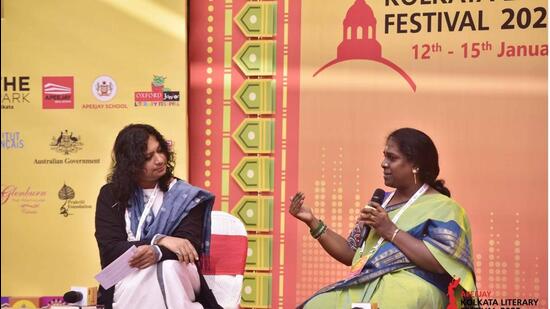
The four-day itinerary struck a balance between celebrating new books that are hot off the press, titles that are worth talking about but did not receive much attention because of the Covid pandemic, and volumes from back lists that are still utterly riveting and relevant. The authors got a chance to discuss matters of form and content, ideology and creativity in the panel discussions. Some of them read excerpts to give a flavour of what their books are like.
There were sessions on mental health, Partition narratives, queer literature, murder mysteries, translation, graphic novels, food, dance, history and historical fiction. Few literature festivals celebrate Dalit writing but the AKLF had a panel on Dalit women writers of Bengal, with Kalyani Thakur Charal, Manju Bala, Kanan Boral and Lily Haldar speaking about their work.
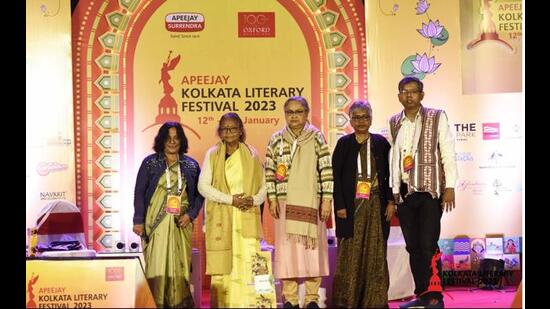
Perhaps the most unique panel of the festival was the one featuring booksellers. Jeff Deutsch of Chicago’s Seminary Co-op Bookstores, Radhika Timbadia of Bangalore’s Champaca Bookstore, and Rick Simonson of Seattle’s Elliott Bay Book Company talked about creating places that promote discovery and a sense of community, building relationships with independent publishers, and learning from the experiences of fellow booksellers.
This session was moderated by Christie Henry of Princeton University Press. She nudged the panelists into talking about their favourite books, the authors they would love to host, and their approach to curation. Unfortunately, the panel had no representation from independent bookshops in Kolkata itself or booksellers from Kolkata’s legendary College Street.
Among the moments that stood out at the AKLF were Jeet Thayil’s calling out of academics as “parasites” who live off the work created by artists, and often make more money; Janice Pariat’s acknowledgement of the “postcolonial guilt” associated with her “convent education” that has written Khasi out of her; Durjoy Datta’s advice to marry someone rich if one wants to have a career as a writer; and Amruta Patil’s assertion that artists have been frontline COVID warriors bringing beauty to the world and healing broken people through art.
The AKLF was big on memoirs as a genre. Akkai Padmashali held forth on transgender rights, sex work, discrimination, and the politics of solidarity while discussing her book A Small Step in a Long Journey. Deepti Naval fielded questions about A Country Called Childhood, her account of growing up in Amritsar. Shobhaa De, who was basking in the afterglow of her 75th birthday, launched her latest book Insatiable: My Hunger for Life.
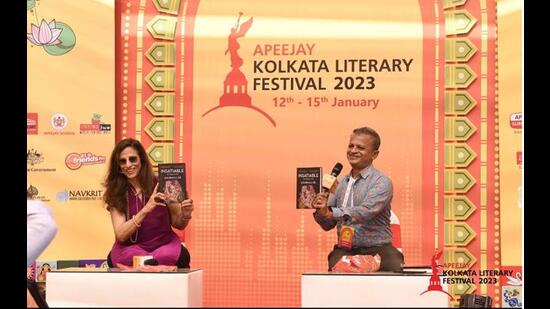
Aparna Piramal Raje, author of the book Chemical Khichdi: How I Hacked My Mental Health, spoke about living with bipolarity. Onir, who was angry about being dropped from the Bhopal Literature Festival after threats issued by homophobic protestors, spoke about I Am Onir and I Am Gay, a book that chronicles his trajectory as one of the few openly gay filmmakers in India. Muzaffar Ali, who recently wrote Zikr: In the Light and Shade of Time, opened up about his journeys in filmmaking and the fashion world, apart from the solace that he has found in Sufi saints.
Karen Anand, author of Masala Memsahib, had audiences eating out of her hands as she recalled culinary adventures and misadventures both in India and across the globe. Mallika Sarabhai revealed various facets of her life as a dancer, actor, daughter, activist and mother in a session about her book In Free Fall: My Experiments with Living. Divya Dutta had many admirers lining up to hear about The Stars in My Sky, a set of essays about friends, mentors and role models who have shaped her Bollywood career and made a difference to her life.
Singer Usha Uthup, the protagonist of Mamta Nainy’s biography The Big-Voiced Girl, regaled audiences with anecdotes from the time when she was thrown out of music class as a schoolgirl, and more recent instances of being accosted and quizzed by strangers at airports when she has shown up without her trademark bindi that can be spotted from afar. She also spoke regretfully of how she stole money from her father when she was a child. The effect of her voice has not waned over the years. When she belted out her own songs, and cover versions, she got people of various age groups tapping their feet and dancing to her tunes.
Arshia Sattar, Srinath Perur, Arunava Sinha, Syeda Hameed, Dahlia Sen-Oberoi, Aanchal Malhotra, Nandini Sengupta, John Zubrzycki, Mani Rao, Alka Pande, Nilanjana Roy, Anuja Chauhan, Christopher Kloeble, and Irina Vikyrchak were also worth listening to. Devdutt Pattanaik’s name was on the schedule but he did not attend. The AKLF showed how important it is to have thoughtful moderators who do not hog the microphone but gently and tactfully draw out answers where the authors shine. Sandip Roy, Anindya Hajra, Barry O’Brien, Debaroti Chakraborty, Jael Silliman, and Bulbul Baksi were excellent moderators.
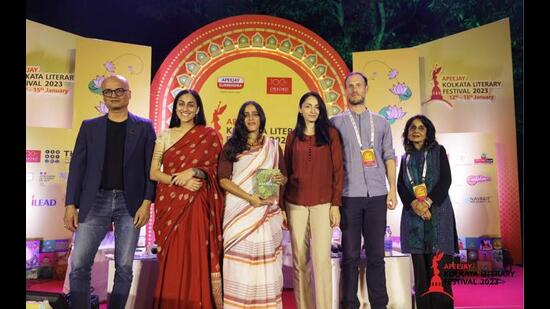
Jeffrey Archer and Alice Walker, who were billed as the international highlights, joined AKLF online. The former spoke about “the weird gift of storytelling” that he discovered after his failure as a politician, his daily writing routine, the huge market for his novels in India, his interactions with Prime Minister Narendra Modi, and his favourite Indian cricketers – Mansoor Ali Khan Pataudi, Sunil Gavaskar, and Virat Kohli. He got the loudest applause when he called RK Narayan “inarguably the best short story writer” that he has read.
Walker highlighted the need to create space for women of colour to speak about the issues they face because their fight is not only against patriarchy but also against white supremacy. While speaking about the culture of violence against women in contemporary societies, she said young girls are “mutilating themselves” to become boys because “they do not want to be female”. This angered some listeners who saw this as evidence of the feminist icon’s prejudice against transgender people.
Alliance Française du Bengale, which is also located at Park Mansions, hosted an intimate “Poetry Café” where Sufia Khatoon, Naveen Kishore, Sunil Bhandari, Jaydeep Sarangi, Sanjukta Dasgupta, Debasish Lahiri, Anita Agnihotri, Supriya Newar, Arunoday Singh and other poets read or performed. While the AKLF deserves kudos for including multiple poetry sessions, it was sad that these sessions were pushed to the margins, much like poetry is treated in publishing. People could not stumble upon these sessions but had to climb several floors and make an effort to find them.
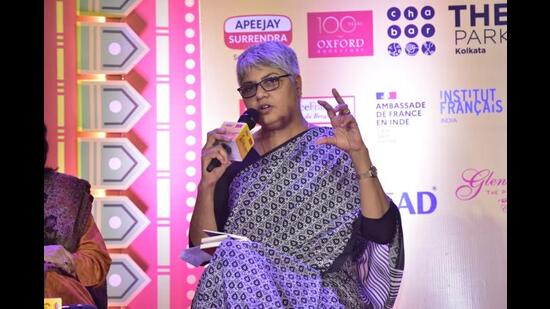
Thankfully, the “Junior Literary Festival” – a section curated specially for children – was on the ground floor itself but at Oxford Bookstore close to Park Mansions. Ensuring the comfort and safety of children is paramount, so a more controlled indoor environment with panels, interactive sessions and workshops – puppetry, dance and theatre – made sense. Shobha Tharoor Srinivasan, Tilottama Shome, Nita Bajoria, Ramanjit Kaur, Shalini Modi, Anjana Basu, Oindrilla Dutt and Sohini Roychowdhury Dasgupta had a joyful but challenging task at hand as holding the attention of children is truly an art form.
Chintan Girish Modi is a freelance writer, journalist and book reviewer
The views expressed are personal
Continue reading with HT Premium Subscription




